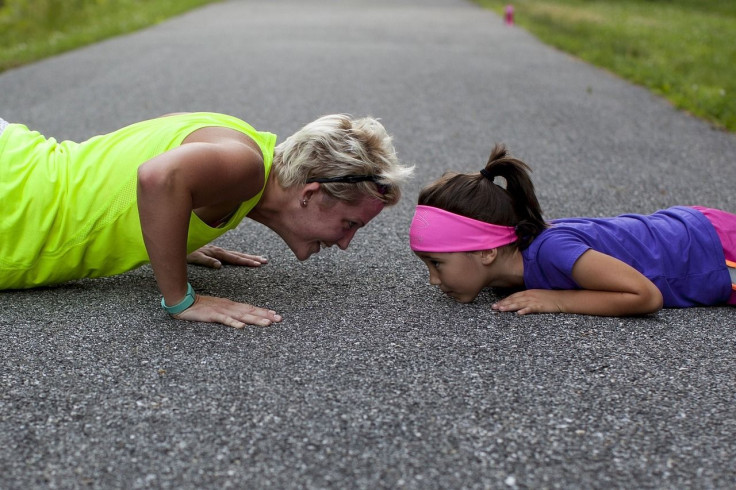Physical Activity Keeps The Brain Young; The Brain Regions That Benefit From Exercise

Olga Kotelko became famous for competing in track and field competitions well into her 90s, showing that even an elderly person could remain physically and mentally fit through activity. The Canadian loved her consistent workout routine, and researchers were fascinated by the effect it had on her health as she aged. In fact, MRI brain scans showed that exercise had reversed her aging in a way, preventing her brain from shrinking compared to other people her age.
Now, a new study adds more evidence to the notion that exercise keeps your mind young. Published in NeuroImage, the study shows for the first time that physical fitness directly impacts brain activity and function. The researchers examined 60 older Japanese men, and found that those who were more physically fit performed better mentally than those who didn’t exercise.
The participants were all aged 64-75 years old. They were given an exercise test to measure their physical fitness, and another test to measure their selective attention, executive function, and reaction time. The mental test was the “color-word matching Stroop test,” the one in which you must name the color of the words, rather than the words themselves (even though the words spell out the name of colors). During the test, the researchers measured activity in the prefrontal cortex (PFC) region of the brain — the right side of which is associated with short term memory and word identification as we get older. Left-PFC activity, meanwhile, is typically associated with younger brains.
They also tested blood oxygen concentration in surface blood vessels, which showed activity in the brain’s outer layers. The researchers then compared and contrasted the links between aerobic fitness, reaction time to the color tests, and brain activity. It turns out that higher fitness levels were linked to more left-PFC activity, or the “youthful” brain activity. In other words, fit older people are more likely to use their brains the way they did when they were young, compared to older people seeing a decline in this area.
“One possible explanation suggested by the research is that the volume and integrity of the white matter in the part of brain that links the two sides declines with age,” Professor Hideaki Soya, an author of the study, said in the press release. “There is some evidence to support the theory that fitter adults are able to better maintain this white matter than less fit adults, but further study is needed to confirm this theory.”
While the study is the first to make a direct link between exercise and younger minds, it’s not the first on this subject. In the past, researchers have found that physical activity — done on a consistent, relatively intense level — boosts not only cognitive function, but also reduces stress, improves memory, and protects you from Alzheimer’s and other types of dementia. The “runner’s high” you experience after pushing yourself to a sweat is actually a hormone-induced euphoria that protects you against mental illness and depression, and paves the way for you to concentrate better on a day-to-day basis. While exercise may not completely protect the brain from aging or shrinking over time, it will at least slow down the aging process and regenerate brain cells. And it will make you feel better — physically and emotionally — at the same time.
Source: Hyodo K, Dan I, Kyutoku Y, Suwabe K, Byun, Ochi G. The association between aerobic fitness and cognitive function in older men mediated by frontal lateralization. NeuroImage, 2015.



























